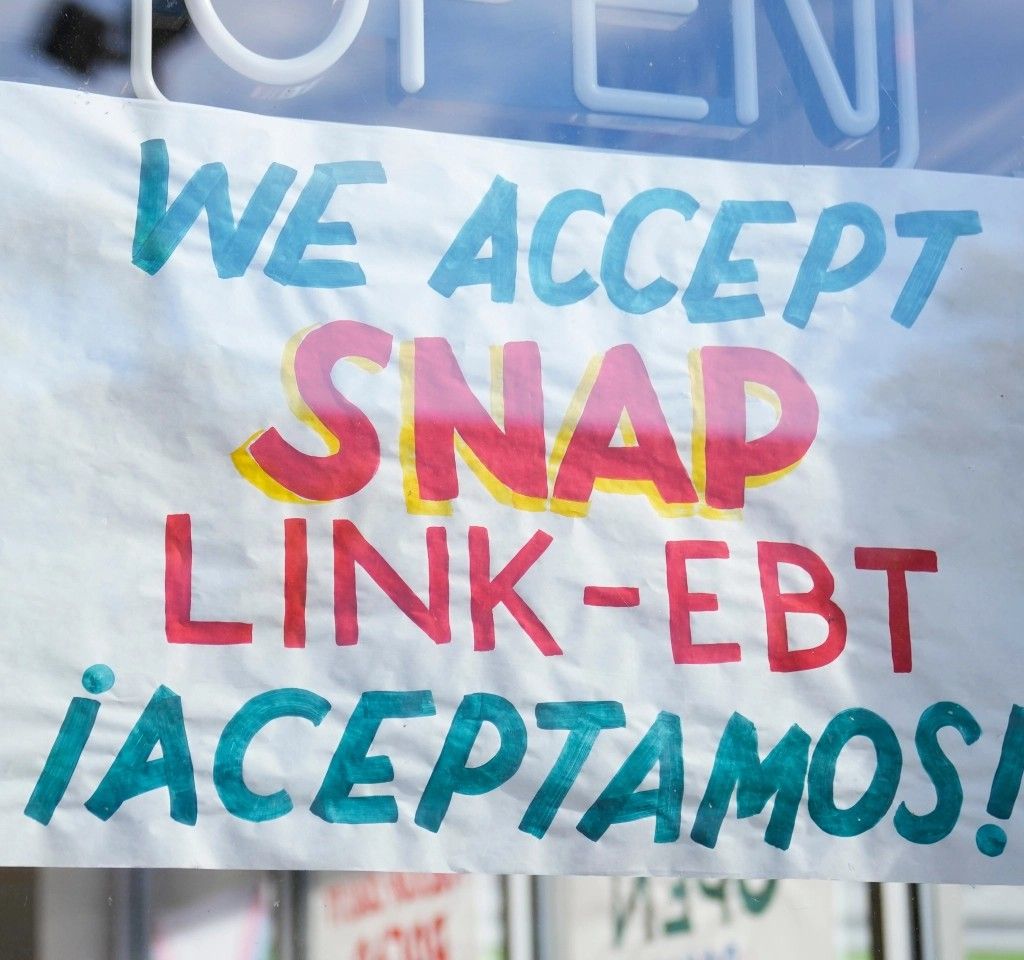In 1848, my 3rd great-grandfather, John, died in Ireland during the Great Hunger – a catastrophic situation where 1 million people starved to death when they were denied food assistance during the potato blight. After John’s death, his mother, Sara, sailed to America in 1849 to escape starvation, but died on the ship.
Thankfully, his dad, his wife, and children would make it to the safety of America, and for generations, my family lived fairly good lives – free from hunger.
But when they say that people are only one illness away from catastrophe, believe it. As a child, when my mom (a single mother of five) became ill, my own family suffered bouts of hunger, and we had to rely on food stamps – now called SNAP benefits – to survive.
So, when our government decides to unnecessarily cut people off from food in what has become a political battle over healthcare costs, it becomes very personal to me.
I don’t know of any parent who would let their child go hungry to pay rent. Do you?
On Nov. 1, SNAP benefits (food stamps) will be placed on hold by the federal government. That means the money low-income people rely on to buy food for themselves and their families isn’t coming. The food cut-off is being played as a consequence of the federal government shutdown, even though the Agriculture Department, whose budget includes SNAP funding, could release money through its more than $5 billion contingency fund.
For years, many low-income people have said they have to make the hard decision between buying food and paying rent. The government shutdown has forced these decisions into a crisis. With rent due on Nov. 1, and the food money not coming in, it is most likely that renters on SNAP benefits will use their rent money for food. It becomes a vicious cycle as these renters will then be hit with late fees on rent that will need to be paid. We could see a cycle where renters use rent money to pay for food this month and food money to pay late fees on rent in later months, putting them in an endless cycle of catch-up. And this scenario will play out in every state in the nation, even after the government re-opens.
What’s more, with SNAP on hold, people will flock to food banks, which will not be able to provide for the 42 million people suddenly cut off from aid assistance. This means that those who rely on food banks to help supplement their needs will have to wait in longer lines, find more food banks in their area, or find themselves with empty cupboards.
It harkens back to the bread lines of the 1930s depression, when residents waited for hours in lines just to stave off starvation.
What’s more, the U.S. is in the middle of an affordable housing and homelessness crisis. Over 771,000 people are homeless in the United States, and about 50% are rent-burdened, paying over 30% of their income on rent.
Adding an extra burden by taking away food money from families and individuals in need will only exacerbate this crisis. More landlords will not be paid rent, more renters will get behind and fear eviction for using rent money for food, and the longer food stamps payments are on hold, the more likely renters will face homelessness.
Let’s be clear: People who are struggling are in a lose-lose situation right now.
The government is shut down while members of Congress fight over a budget that ends subsidies for healthcare, which primarily help low-income people who cannot pay high insurance premiums.
One could say that Congress is pitting those who need help with groceries against those who need healthcare subsidies, except that, for the most part, the same group of people relies on both programs to survive. Low-income people need help with both food and health insurance, and no matter how this congressional stalemate plays out, they will be hurt. If congressional members trying to save healthcare subsidies cave and agree to vote for the current budget in order to release SNAP benefits, low-income people could be denied life-saving healthcare. If Congress doesn’t open, low-income people will be denied food benefits, and that will likely leave them hungry and behind on rent as well.
The situation is so bad that 25 states and the District of Columbia are suing the federal government to release SNAP food benefits through the Agriculture Department emergency fund, which could bring a temporary fix to the 42 million food aid recipients struggling with hunger. Regardless of the judge’s decision, the federal government should step up and provide the promised funds to the people who rely on them to pay for groceries.
Food, housing, and healthcare are intrinsically linked. When the federal government fails to provide for these basic needs, low-income people suffer disproportionately. For everyone’s sake, let’s hope that reason prevails, and people are not forced to go hungry over a Sophie’s choice decision between food and healthcare.
By Susie Shannon
Policy Director at Housing Is a Human Right











